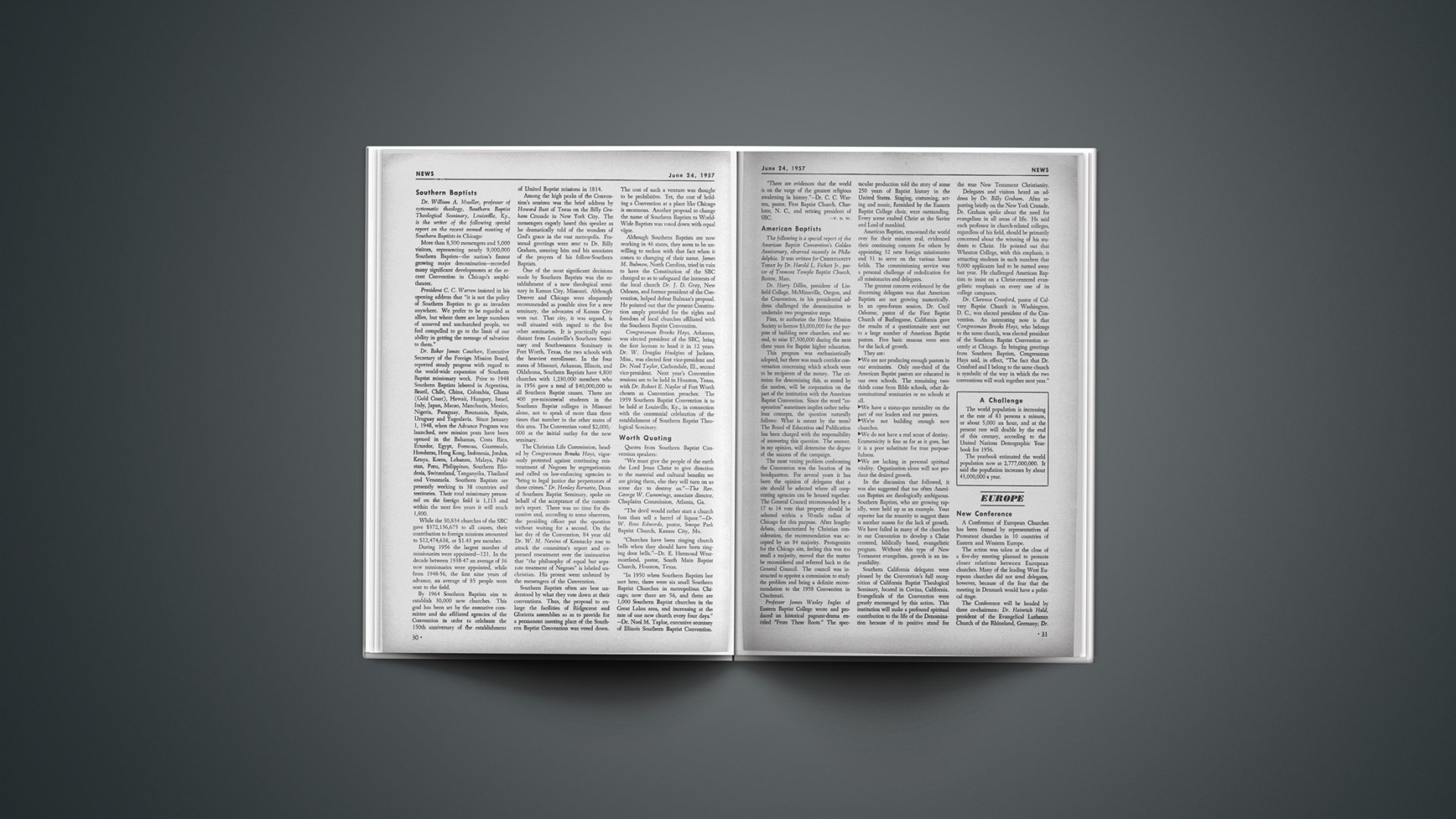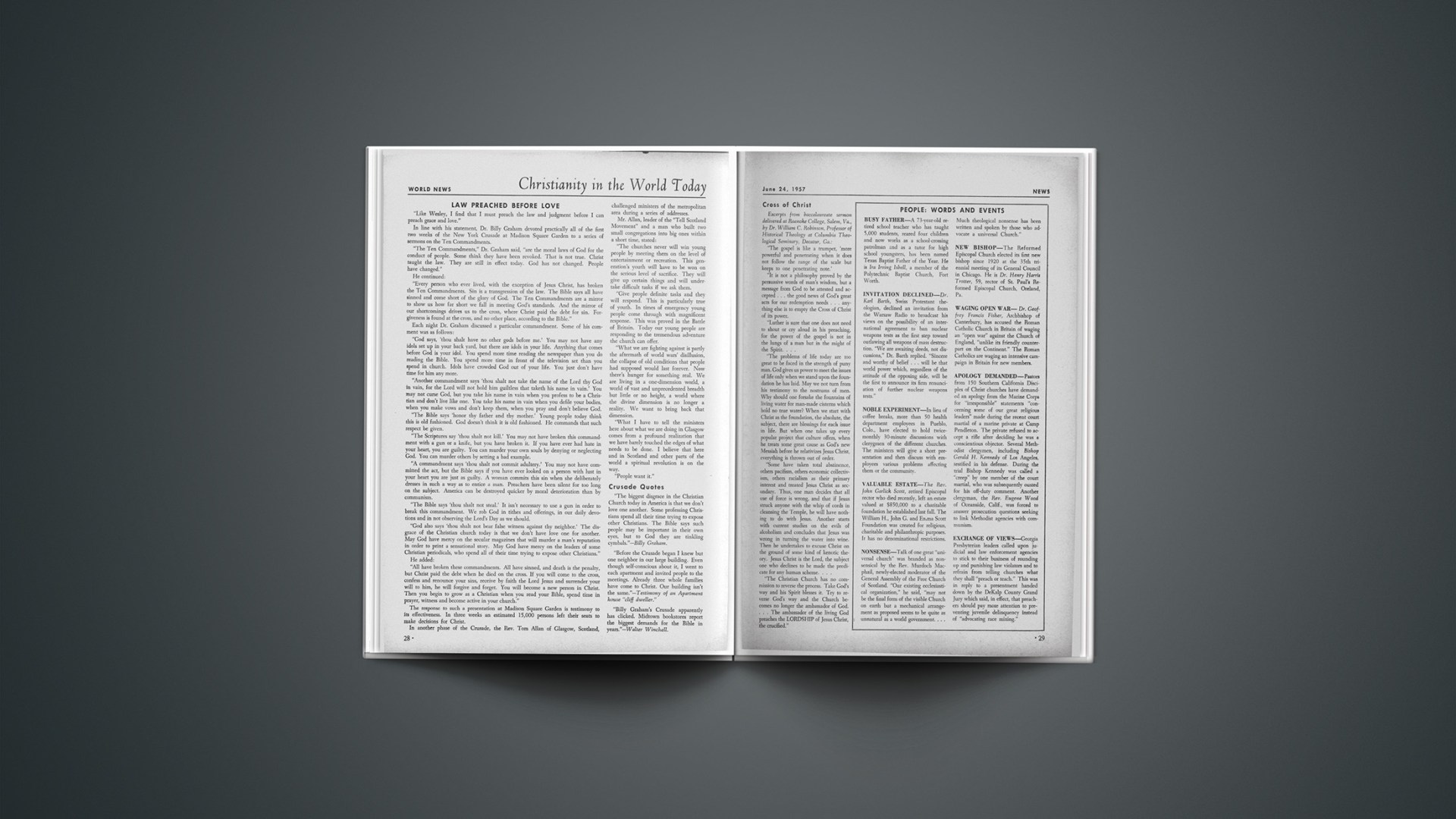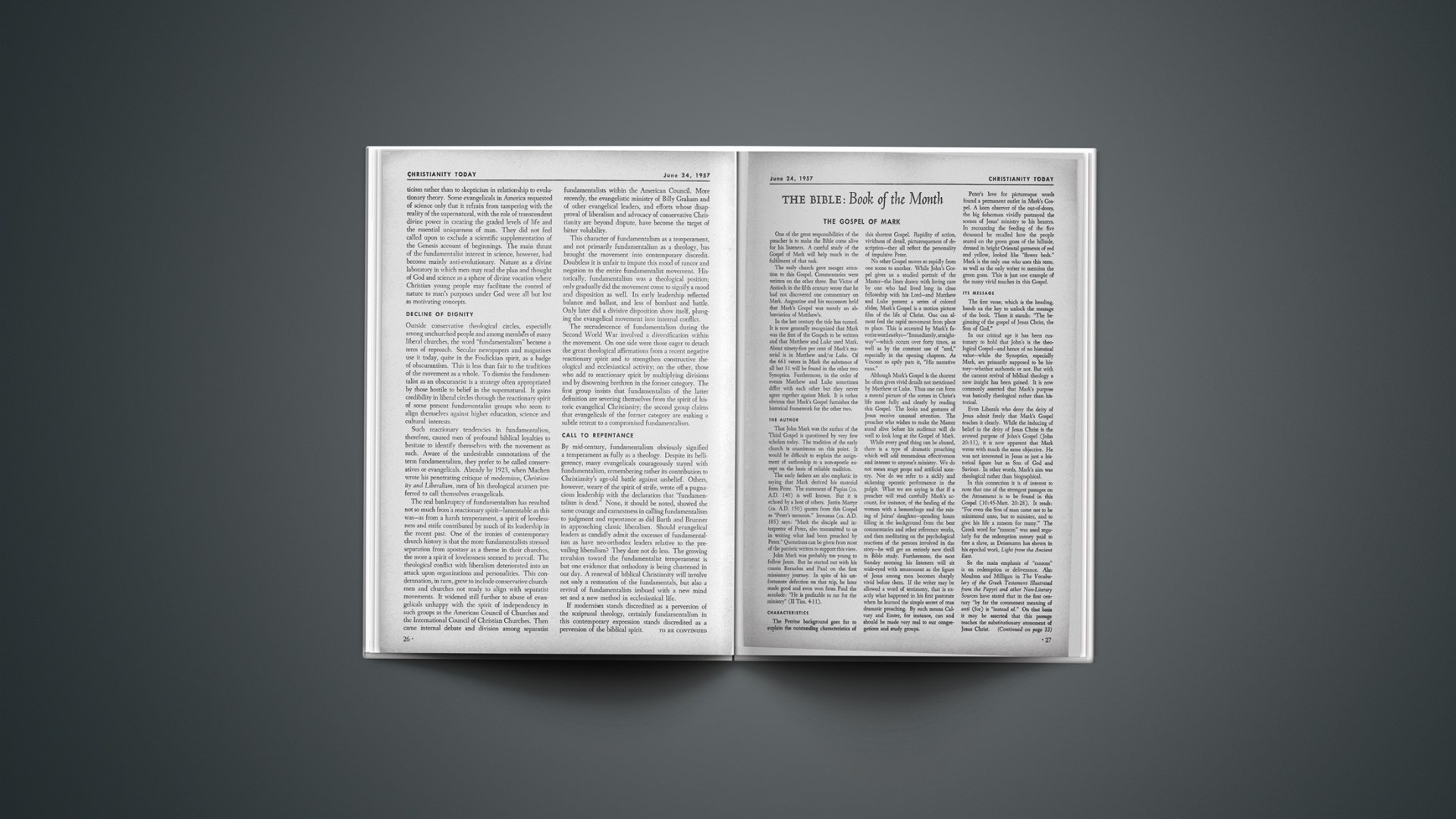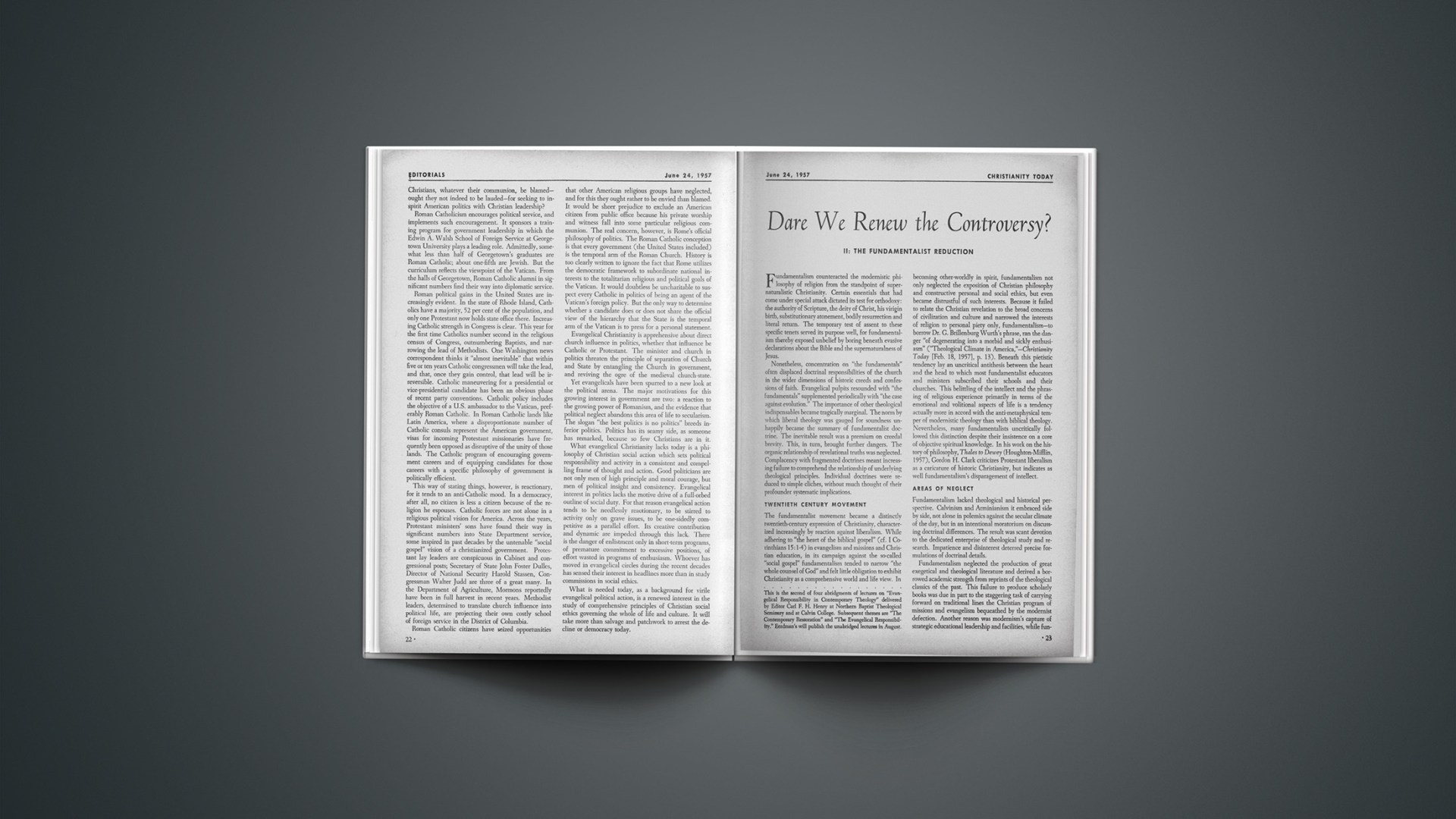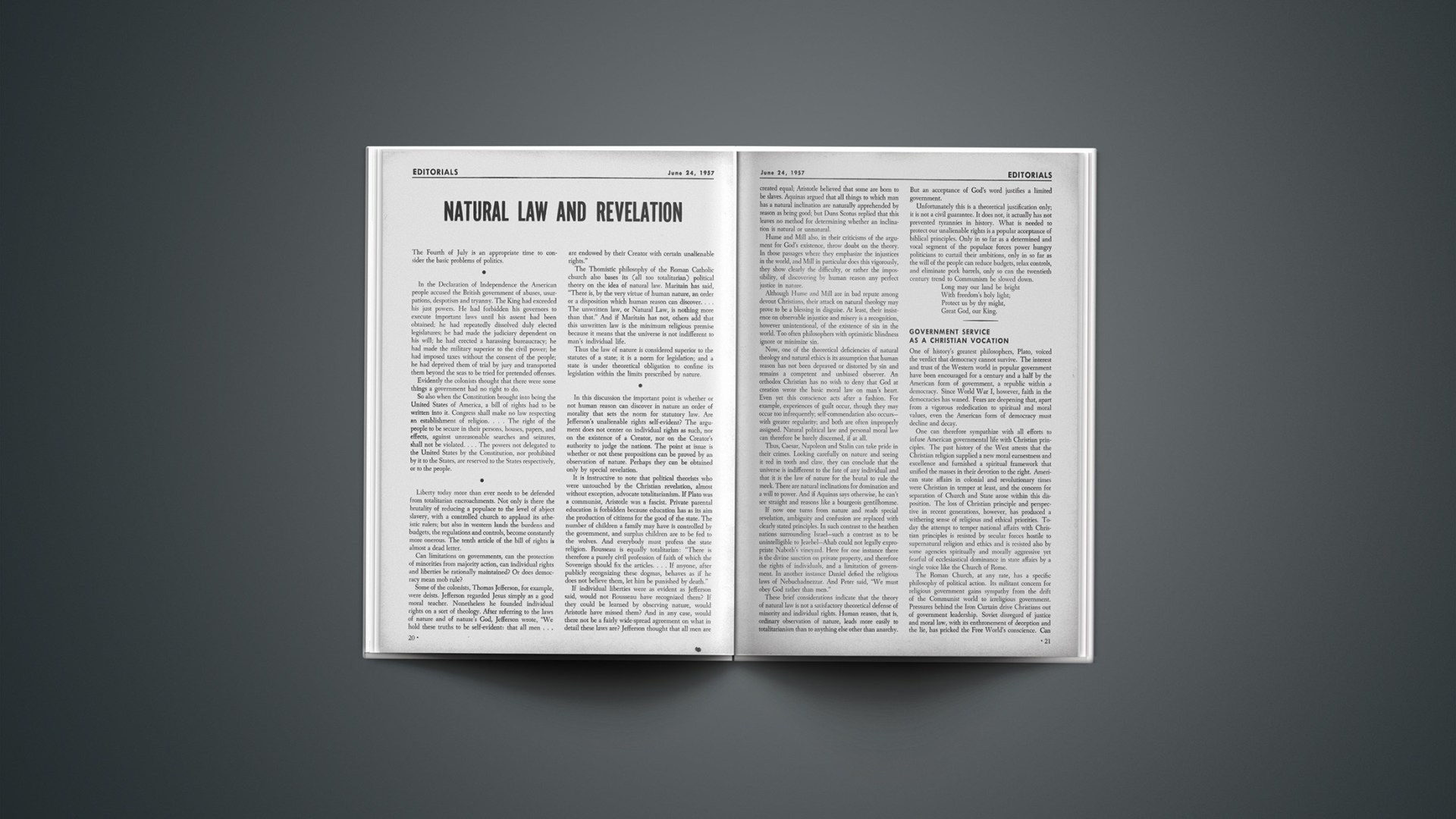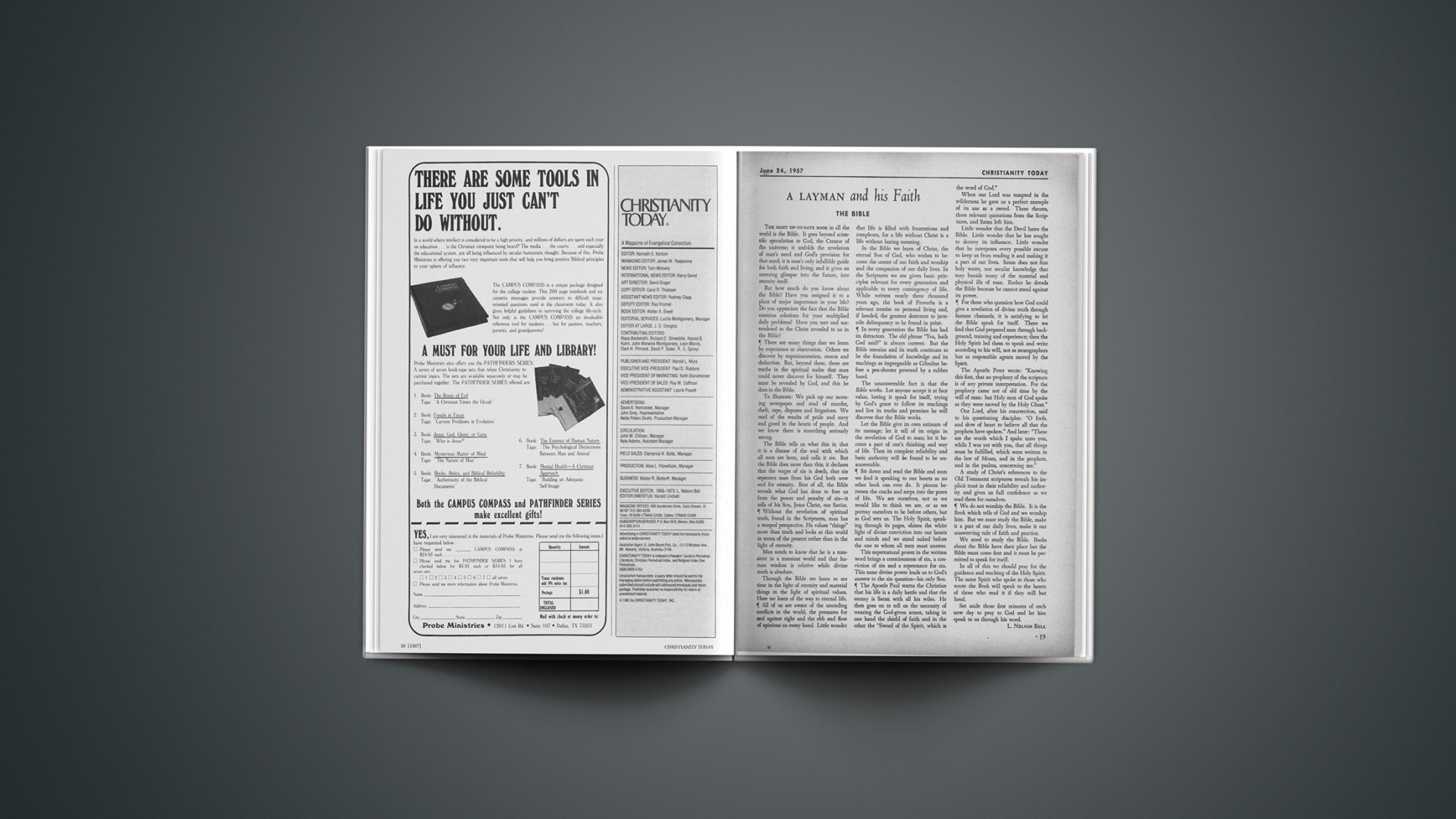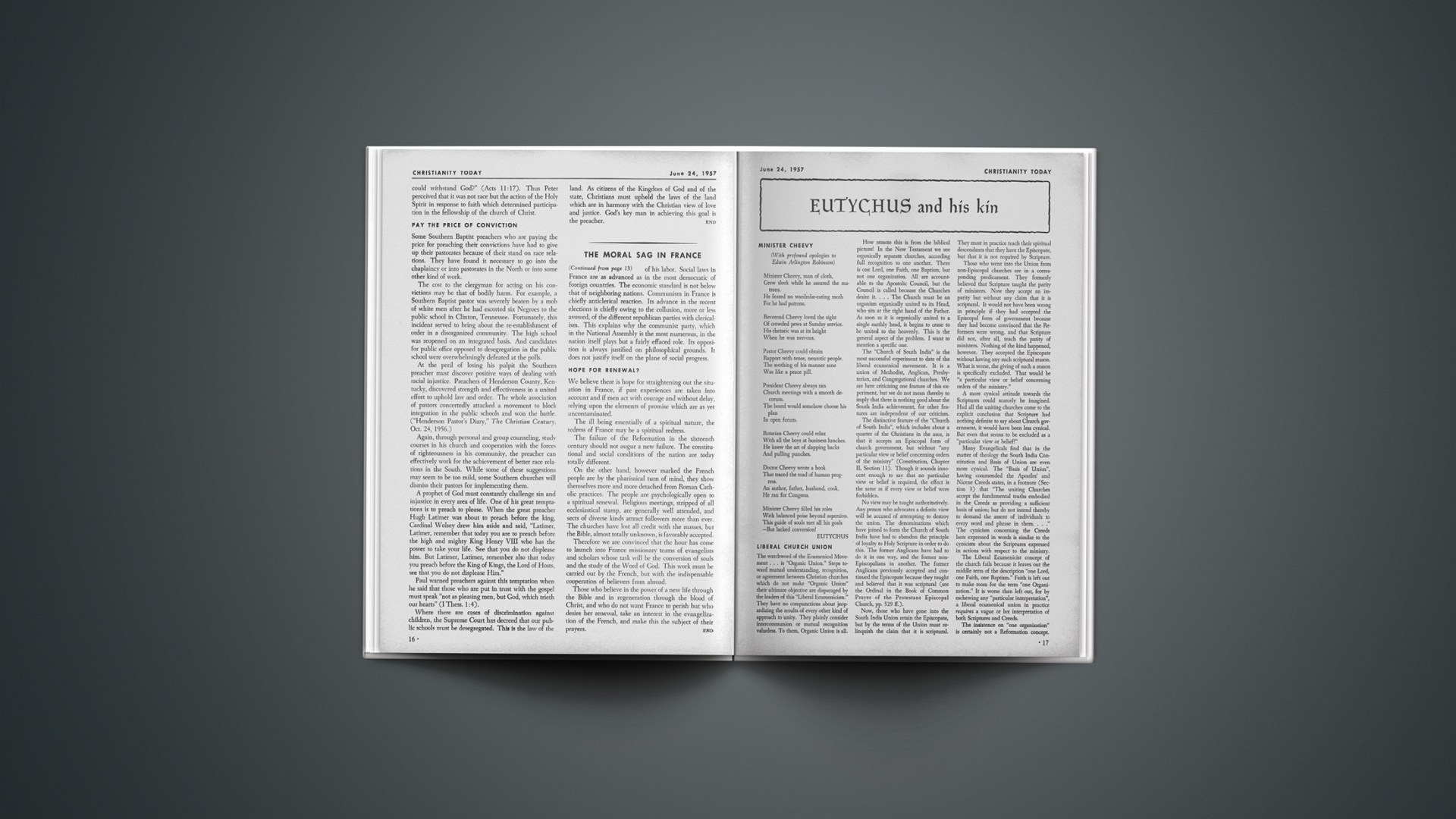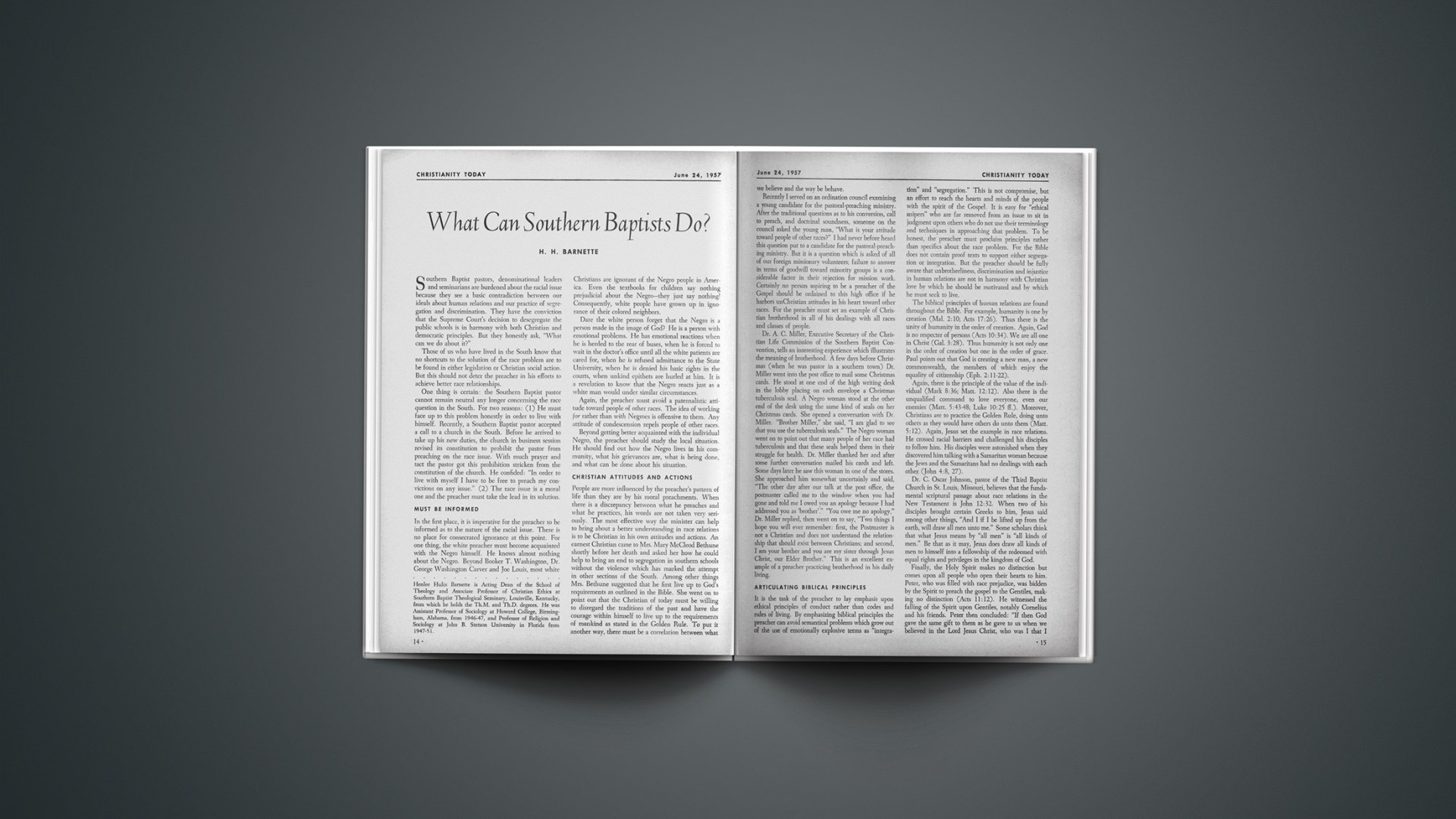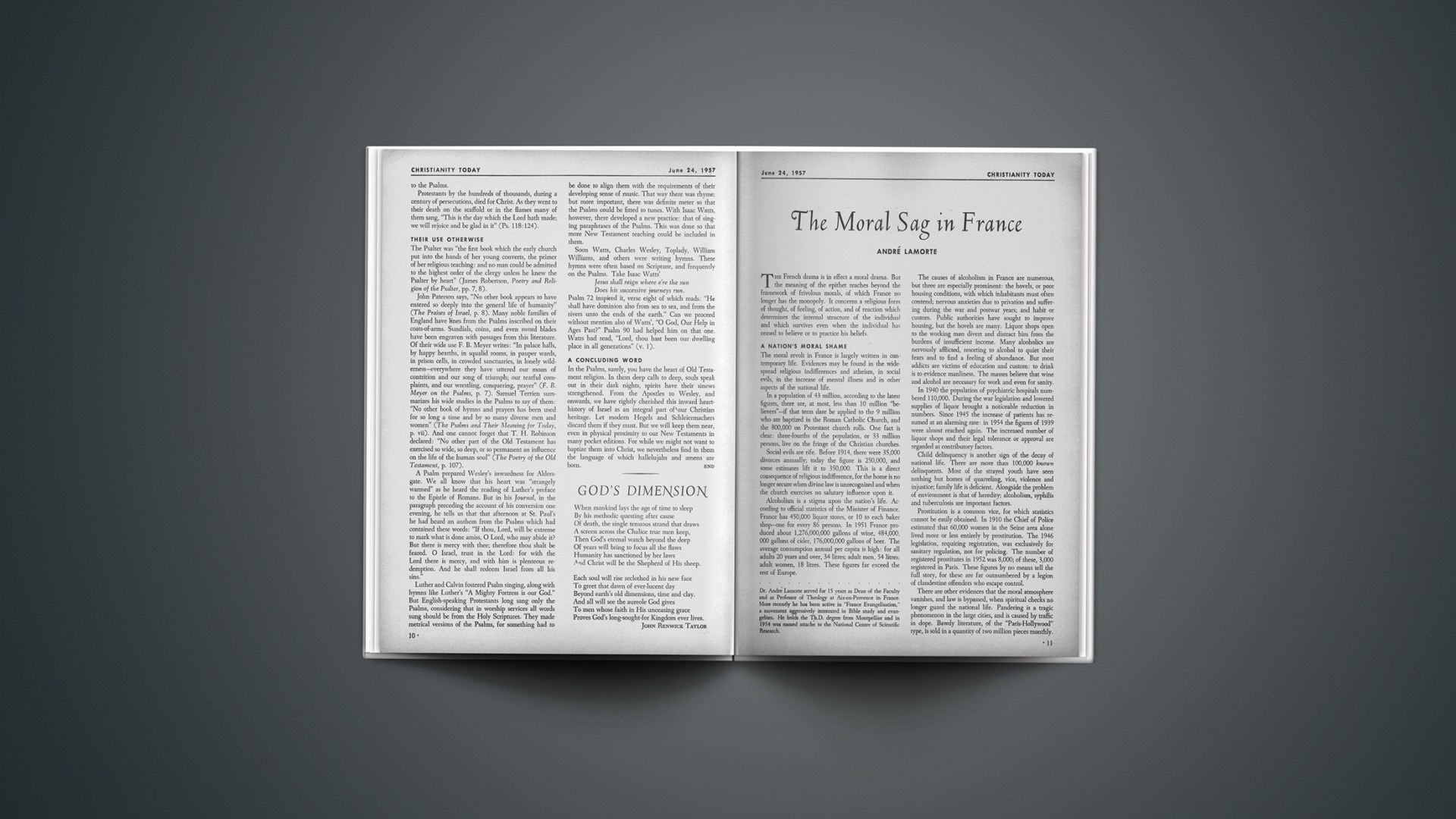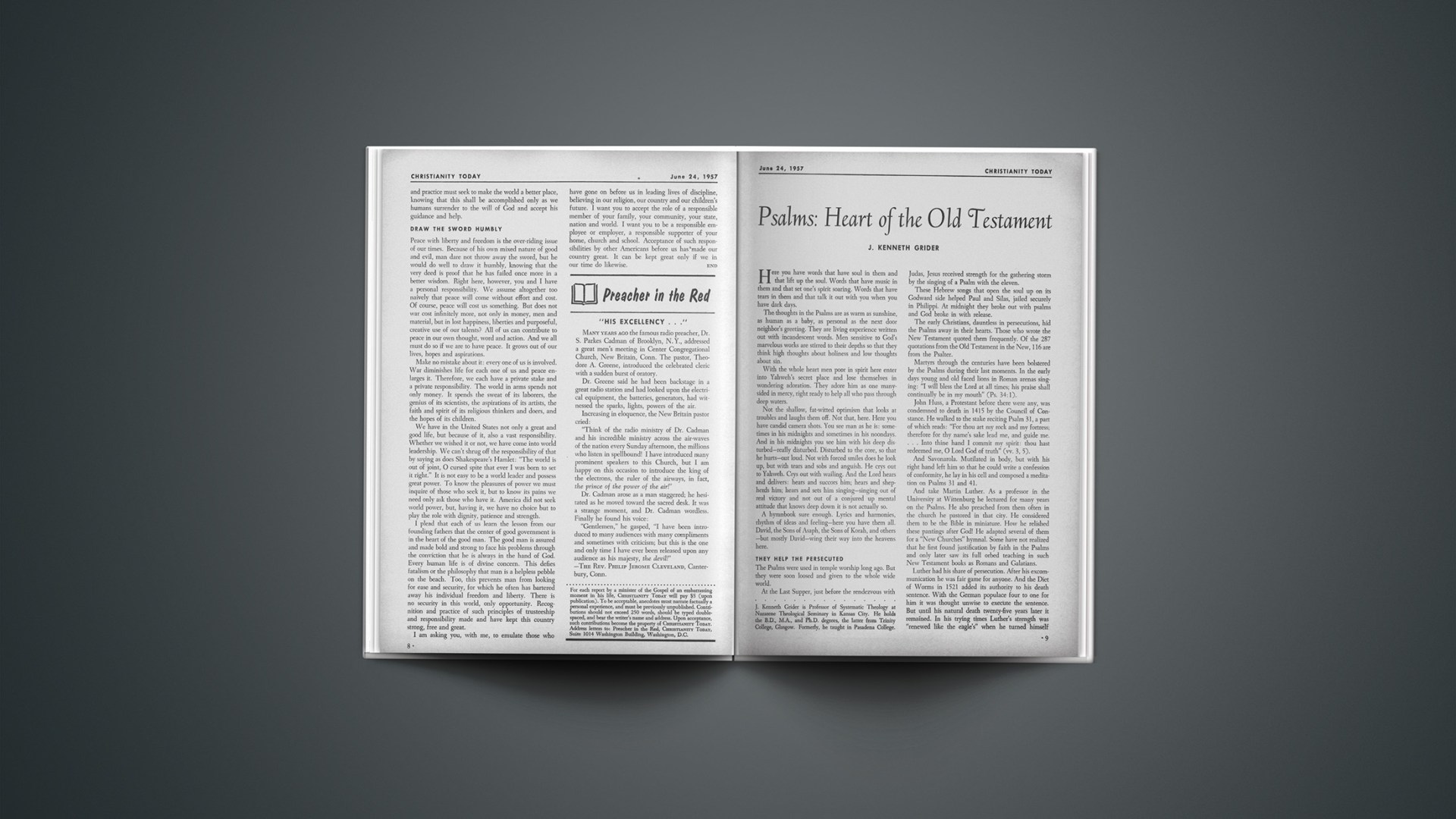New Conference
A Conference of European Churches has been formed by representatives of Protestant churches in 10 countries of Eastern and Western Europe.
The action was taken at the close of a five-day meeting planned to promote closer relations between European churches. Many of the leading West European churches did not send delegates, however, because of the fear that the meeting in Denmark would have a political tinge.
The Conference will be headed by three co-chairmen: Dr. Heinrich Held, president of the Evangelical Lutheran Church of the Rhineland, Germany; Dr. Egbert Emmen of the Netherlands Reformed Church; and Evangelical Lutheran Archbishop Jaan Kiviit of Estonia.
Invitations to join the Conference will be extended to the Church of England (Anglican) and the Lutheran Churches of Germany and the Scandinavian countries. In addition, spokesmen said attempts will be made to seek the cooperation of the World Council of Churches.
The German Evangelical Churches and the Council of the Evangelical Church in Germany did not send delegates to the meetings. Neither were there any representatives of the Norwegian, Swedish and Danish Lutheran Churches. There were, however, large numbers of delegates from minority churches in Belgium, France, Italy, Greece and Yugoslavia.
Among the delegates were groups representing the Lutheran Churches of Hungary, Latvia, Estonia and Hungarian Reformed Church. These delegates appealed for cooperation between the Protestant churches of Western Europe and those behind the Iron Curtain.
1,000,000 Bibles
More than 1,000,000 Bibles and Scripture portions were distributed in Germany during 1956 by German Evangelical Bible societies.
Over 200,000 were produced by societies in the Soviet Zone. This was made possible largely by newsprint shipments from foreign churches.
The report was issued by the Association of Evangelical Bible Societies in Germany at a meeting in Stade. Largest of the societies is the Priligierte Wuerttembergische Bibelanstalt, which has circulated more than 37,000,000 Bibles and portions since its founding in 1812.
Samuel Mueller, secretary general of the association, said the most important event last year was the completion of a revised version of Luther’s translation of the New Testament. Written in modern language, the version takes into account recent finding of theological research.
Work on the translation, which will soon go into print, was launched about 30 years ago. The revision was approved by a special commission of the Evangelical Church in Germany and the Association of Evangelical Bible Societies.
The version currently in use was issued more than 60 years ago, with only minor changes made since then.

